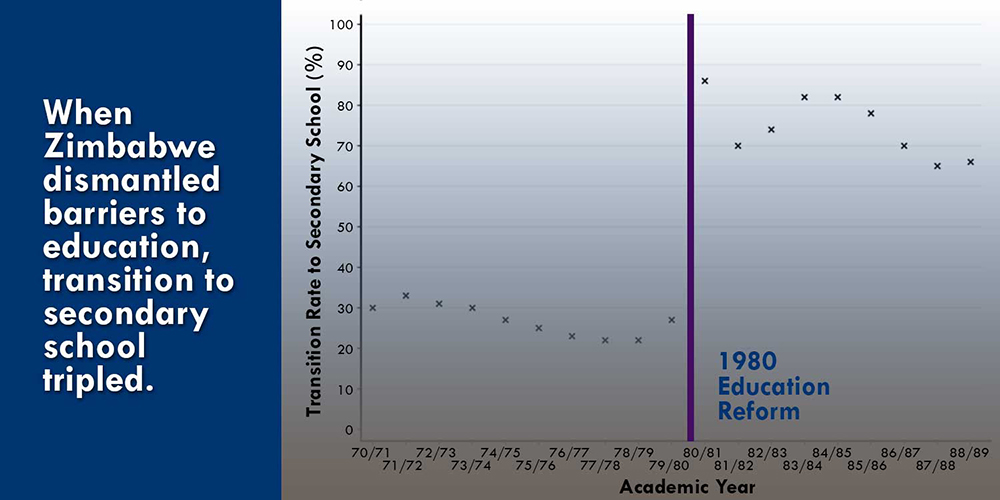Poorly Rated NYC Schools Attract Better Teachers
The idea of holding schools accountable for students’ performance has stood at the center of school-reform efforts in the United States for more than two decades. One of the many questions that have been raised is whether accountability efforts could backfire by driving good teachers out of poorly rated schools, creating a vicious cycle for principals attempting to turn their institutions around.
Rebecca Dizon-Ross (The University of Chicago Booth School of Business) finds that sometimes the reverse is true—a bad accountability mark for a school can decrease the likelihood that a teacher will leave, and even leads to more good teachers joining.
Dizon-Ross analyzed data from New York City’s public-school system, which began assigning school-accountability ratings in 2007. Grades of A–F are assigned every November based on measurements taken the previous school year. Schools that earn As and Bs win extra funding, but schools rated C and below face serious sanctions, including potential closure. Teachers are neither punished nor rewarded for the ratings their schools receive.
Dizon-Ross examined the impact of one year’s ratings on teacher turnover the following summer, looking in particular at schools that hovered at the cutoff points between two ratings. She found that when schools just missed out on getting a C or a D rating, more teachers stayed. And at these schools, high-quality teachers were no more likely to leave, while new teachers who joined the staff were better, on average. The effect was not seen at highly rated schools.
So why would better teachers work at these “failing” schools? Dizon-Ross hypothesizes, “Because low ratings carry serious consequences, such as school closure, receiving a poor grade puts pressure on principals to make improvements. And, from a teacher’s perspective, teaching at an improving school is a rewarding experience.”
Read the full study in the Journal of Human Resources: “How Does School Accountability Affect Teachers? Evidence from New York City,” by Rebecca Dizon-Ross.
***
Rebecca Dizon-Ross (@RDizonRoss) is an assistant professor of economics at The University of Chicago Booth School of Business. She acknowledges the Chicago Booth Review team for assistance with this summary.



